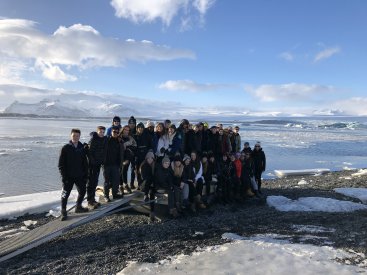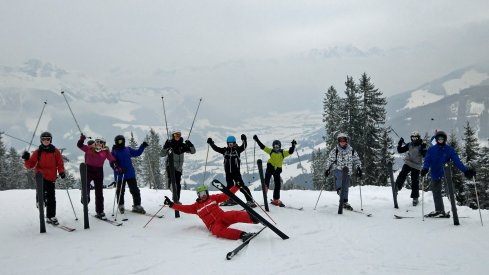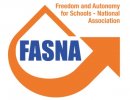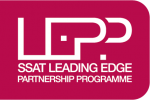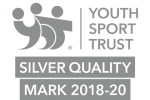Numeracy and Literacy in Science
In the Science Department we recognise the importance of Numeracy and Literacy across the curriculum. For Science it would be impossible to learn, discover and share ideas and inventions without the use of Numeracy and Literacy. All good scientists use these key skills on a daily basis.
In the Department we have a full intertwined program of Numeracy and Literacy which covers the Science curriculum and it is our aim to promote excellent use of Numeracy and Literacy skills within lessons from Year 7 to Year 13.
Numeracy:
There is a strong numeracy presence in many scientific areas of study which students will meet in their time at Arden. All three areas of Science have high levels of numeracy within them and any scientific experiment will involve the usage of data collection and analysis to draw conclusions.
How Science Works / Experimental Procedures:
Students will use numeracy in the precise measurements that lead them to the collection of good valid scientific data. This can be as simple as measuring the temperature of water correctly to more complicated data collection such as calculation the concentration of chemicals in chemistry titrations.
Students will then present this data in graphical form following numeracy rules on how to do so before using the graphical information to analyse data and identify patterns or trends within it and drawing conclusions .
Biology
Traditionally the Science which students don't always associate with numeracy, biology is an area of Science which our understanding is actually fully linked to numeracy.
In looking at cells it is important that students have a good understanding of scale in being able to interpret the size of cells and their parts from the first module they look at. As Science lessons continue into higher school student will calculate exact size of cells using the magnification equation at A level and will need to be able to calibrate microscopes to do this will real examples.
When looking at the human body students will consider the rate of breathing and heart rate from Key Stage 3 and link this to health and exercise. Students will consider more precisely oxygen consumption rates, stroke volume of the heart, and carbon dioxide production rates at GCSE. Students who choose biology at A level will use numeracy to work out RQ values for respiration, and use spirometers to measure lung capacities and different oxygen consumptions during exercise and in the testing of health.
For ecological studies it is essential that students can collect data from quadrats and then analyse this to look at how environmental factors are influencing the number of living organisms present in an area.
Chemistry
The understanding of Chemistry is very quantitatively based with numeracy being vital in its rules. Students will begin chemistry by including very simple numeracy and then this will gradually build to more complex numeracy and equation based work. Students will need to be able to balance equations which is a key numeracy skill during their GCSE and beyond.
When studying any reaction students will normally calculate the rate of reaction which will involve taking precise measurements and analysing the data collected. Students will become adept at looking at graph shapes and being able to read the information that the graph shows.
In using acids and alkali's it is vital that students can measure and understand the importance of the pH scale from the very first module in Year 7. This will then become more detailed and students will calculate molarities at GCSE and use numeracy for more complex acid and base equations in the Sixth Form.
Physics
Every law of Physic is underpinned by mathematical rules. Students will encounter numeracy in most physics lessons during their Key Stage 3 years directly and this will build a greater understanding of things and how they work around them. Students often find their understanding of physics and the ability to use numeracy skills to solve real life problems the most valuable part of Science lessons due to our natural want to understand.
Most Physics subjects will require students to complete numeracy work and this includes lessons looking at speed and aerodynamics, calculating momentum, explaining heat transfers, explaining energy consumption, calculating electricity, looking at the laws of the electromagnetic spectrum.
It is clear that Physics is a Science built on mathematical laws when you consider that the mathematical principles of calculus were invented by one of the most famous physicists of all time Sir Isaac Newton who later went on to explain gravity, light and motion to the level we understand now. All Science teachers have a good numeracy grasp and will approach the delivery of numeracy in a careful way to structure students understanding and ability to apply it fully. Essentially all skill will be originally taught in maths lessons.
Literacy:
Literacy is the scientist method of communication. If you type scientific journal on Google you would find millions of entries. A scientist cannot explain their ideas without presenting it in an understandable standard scientific format which is accessible by others around the world. Charles Darwin would not be famous for his theory of evolution if he hadn't written one of the most famous books of all time - The Origin of the Species'. Currently there is a huge amount of scientific information available to students in different Literacy formats - the internet, kindle and books, magazine etc and we encourage as much wider reading as possible.
Scientific Terminology
Within Science lessons Literacy is used on an almost consistent basis with students being given key words and needing to learn their definitions. In Year 7 and 8 to really make a positive push on the new scientific terminology which students will continue to use during the rest of their time studying Science, students will be given keyword spelling and definition explaining quizzes. To help with this Science teachers will explain what the word means and develop the students understanding of the term in a structured way. For example students will be taught the word photosynthesis is a combination of 'photo' meaning light and 'synthesis' meaning to make and the word is the term for plants using light energy to make glucose.
Writing Scientific Reports:
Students will be trained into writing scientific reports and will learn how to structure them properly throughout their scientific learning. A scientific report would normally take the following structure:
- Hypothesis and prediction
- Plan (method)
- Risk Assessment
- Results
- Graphs and data analysis
- Conclusion
- Evaluation
During Key Stage 3 and 4 students will develop a detailed understanding of all of the above terminology and what is expected to be included in each of the sections.
Researching and Independent Learning:
Students are being trained more to be independent learners and in Science this is a key skill as all scientists should be inquisitive and want to find out more information. In order to do this students will be given opportunities to research information from books and the internet using a number of different reading and research types. This skill becomes essential to allow students to develop an ability for the GCSE and A Level exams where students are often expected to read information and pull out the facts to construct a balanced argument.
Completion of work in Science can be done in many formats and many of our extended pieces of work are Literacy orientated to cover a variety of Literacy based skills. In addition to this the Science Department is a strong user of the schools green pen policy which includes the use of peers to help identify grammatical errors and spelling mistakes.
Scientific Reading:
The following websites are excellent sites of background reading for Science:
BBC Science and Nature:
BBC Newsround:
http://www.bbc.co.uk/newsround/15743115
Science For Kids:
Science Experiments
http://www.sciencebob.com/experiments/
Children's Science News:
http://www.sciencenewsforkids.org/
Science , Social Skills and Reading for Kids:


